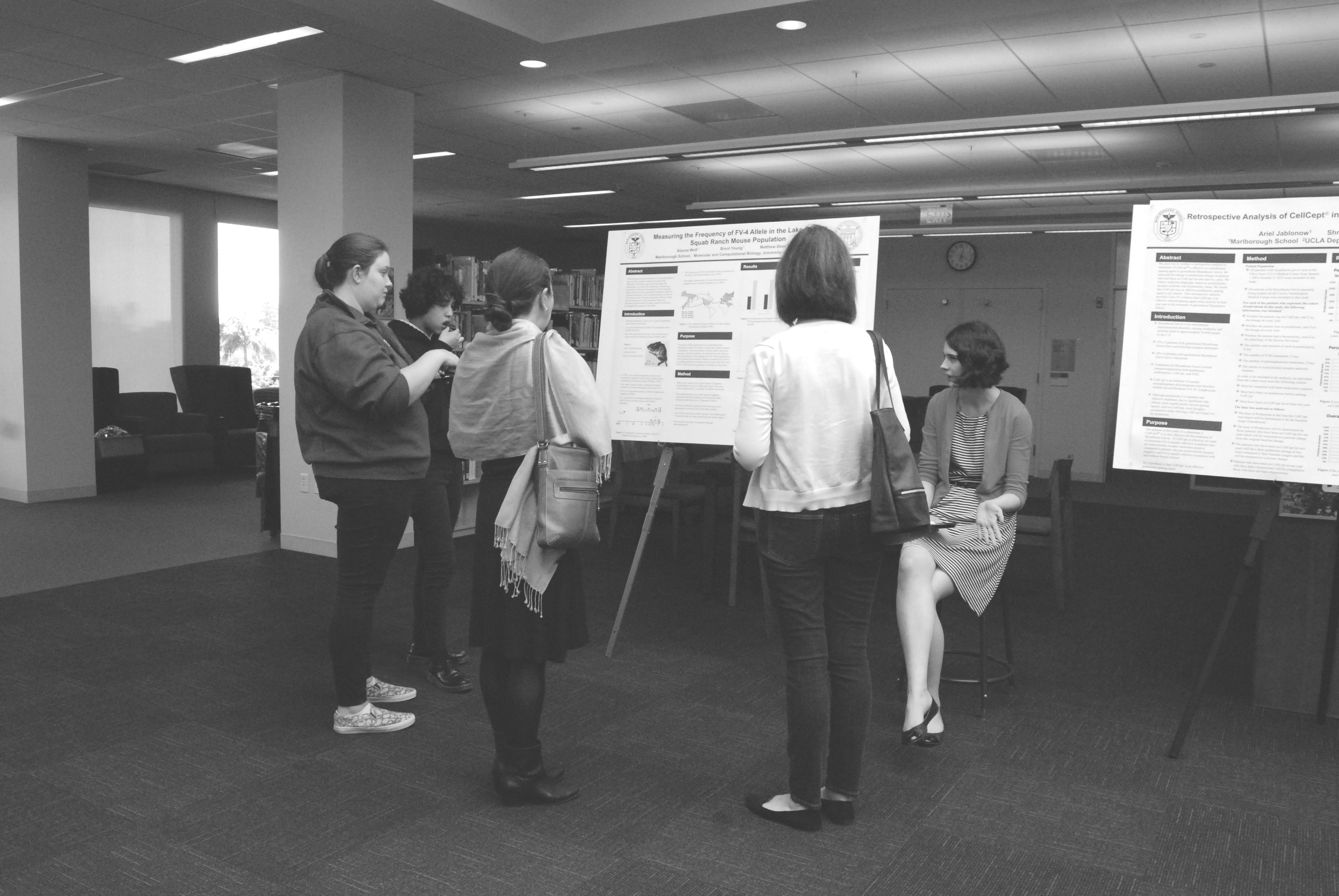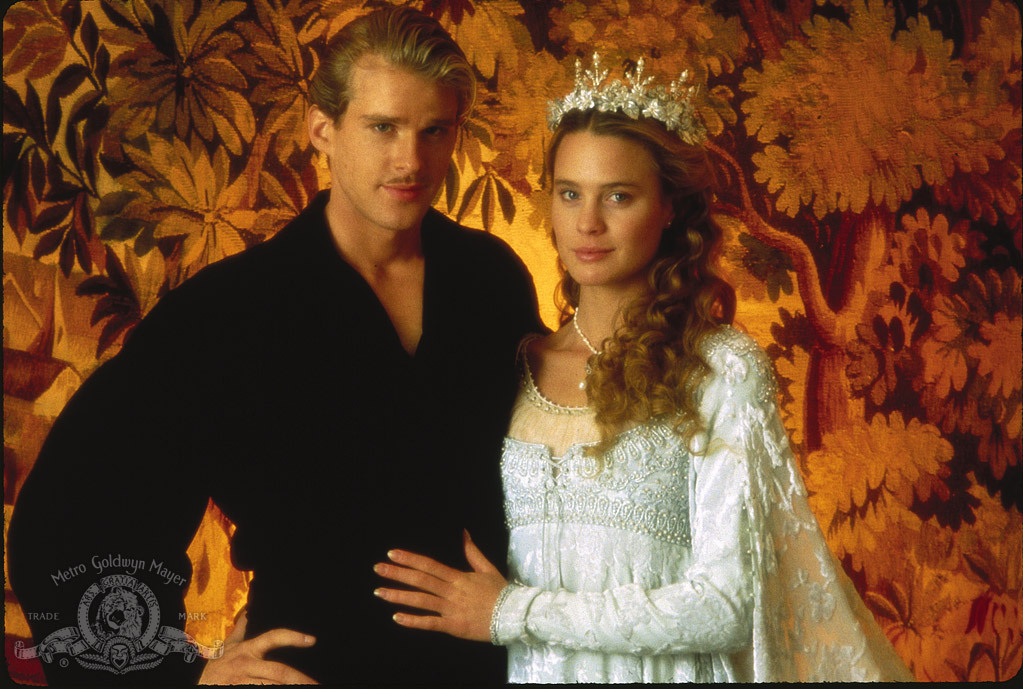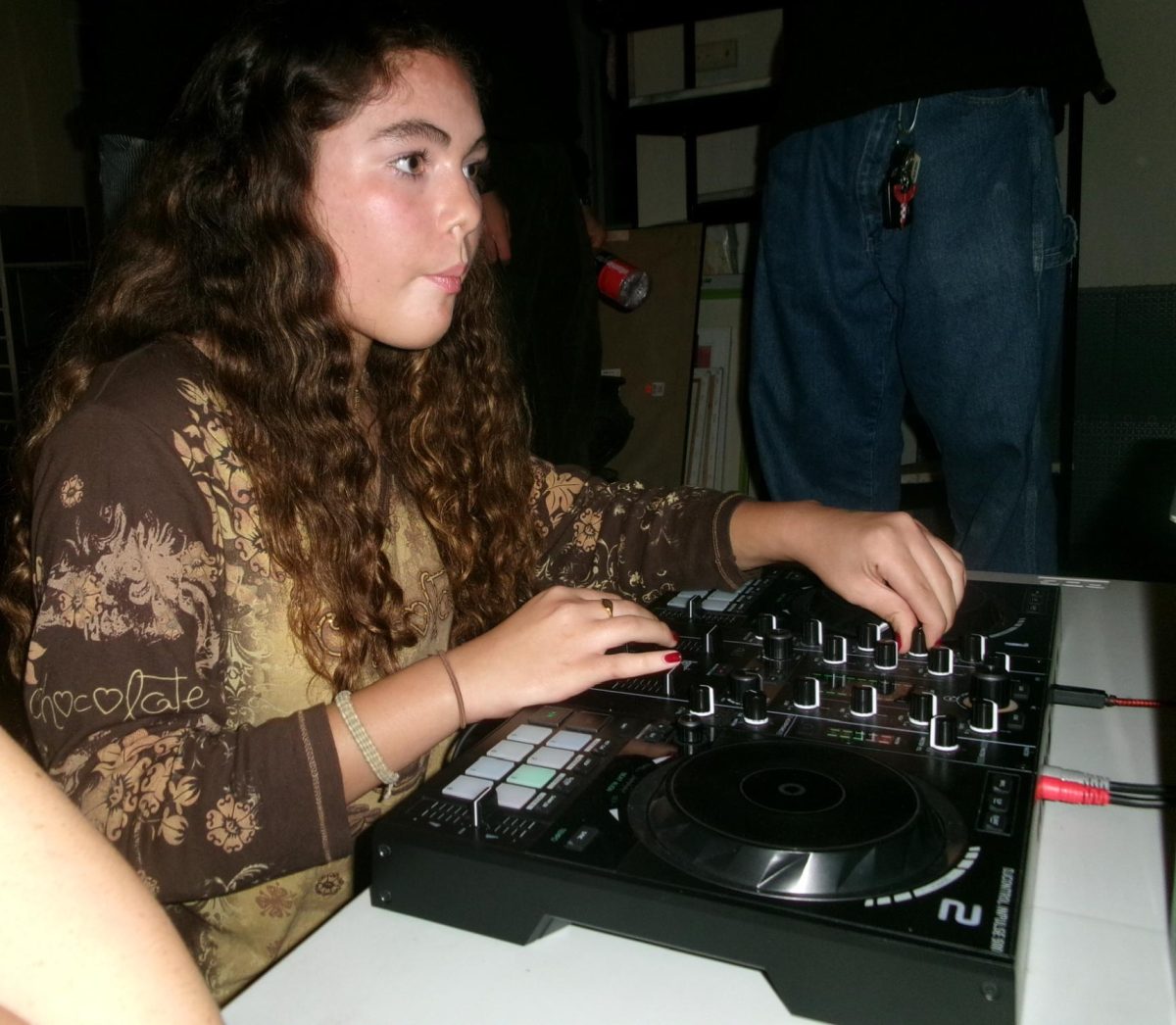
Photo by Sora ’18.
Students of the Leonetti O’Connell Honors Research program gave their presentations on their year-long research projects in the ARC on Wed, Apr. 27. The Honors Research Program gives Marlborough students the opportunity to choose a research topic in science, social sciences or humanities and present their findings in a poster and a final paper. For juniors the posters provide a visual representation of their progress, and for seniors the culmination of their project.
The Honors Research program is noteworthy for the independence it provides students to pursue their interests.
Noa ’16, a research participant in the sciences, commented on the importance of the Honors Research program.
“I think the program is so central to the school because it gives girls the chance to explore a specific field of interest beyond the classroom. While at Marlborough, girls are encouraged to explore their passion and to challenge themselves. The [Honors Research Science] program allows for exactly this and Marlborough would not be the same without it,” Noa said.
Throughout the year, Honors Research in Science Program Head and science instructor Elizabeth Ashforth and Honors Research in Humanities and Social Sciences Program Head and Latin instructor Victor Ortiz work with students to draw information from their research to write their papers and eventually to develop the poster presentations.
“[The challenge] varies, [so] you never know what’s going to happen from day to day. Some days, it’s very quiet, [and then on others] we have things going on in the labs that are completely out of our control,” Ashforth said.
There were 15 posters in the sciences, with subjects ranging from biochemistry to engineering. Research students in the sciences are required to spend eight to ten hours a week in the laboratory conducting research during the school year.
Research projects in the humanities and social sciences included literature, art and political science. The main difference between the sciences and the humanities and social sciences is that in the latter participants write their research papers around a research question, or an argument for their paper.












